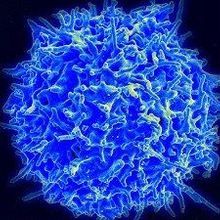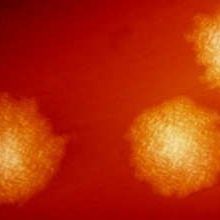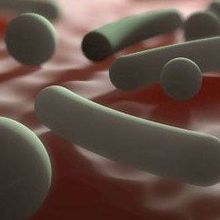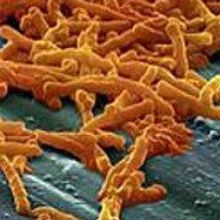Login
Subscribegut microbiota

Messing with the Microbiome
Ruth Williams | Jul 16, 2017 | 1 min read
Two new techniques allow researchers to manipulate the activity of gut bacteria.

Social Ties Linked with Gut Microbiota
Aggie Mika | Jun 5, 2017 | 3 min read
Individuals who are more social and report feeling close with their families display similar gut microbes.

In Certain Social Bees, Gut Microbiomes Follow Phylogeny
Ashley P. Taylor | Mar 29, 2017 | 3 min read
Corbiculate bees and their gut-dwelling microbes have been coevolving since the social species evolved from their solitary ancestors around 80 million years ago, scientists suggest.

Key Regulator of Intestinal Homeostasis Identified
Diana Kwon | Mar 3, 2017 | 3 min read
SP140, an epigenetic reader protein mutated in a number of autoimmune disorders, is essential for macrophage function and preventing intestinal inflammation, scientists show.

Human Gut Microbe Transplant Alters Mouse Behavior
Anna Azvolinsky | Mar 1, 2017 | 3 min read
Fecal transplants from humans with irritable bowel syndrome and anxiety into mice lead to similar symptoms and anxiety-like behavior in the rodents, researchers report.

Neonatal Gut Bacteria Might Promote Asthma
Anna Azvolinsky | Sep 12, 2016 | 3 min read
Byproducts of gut microbes in some 1-month–old babies trigger inflammation that is linked to later asthma development, researchers find.

One Antigen Receptor Induces Two T cell Types
Ruth Williams | Aug 26, 2016 | 3 min read
Precursor T cells bearing the same antigen receptor adopt two different fates in mice.

Antibiotic Therapy During Infancy Increases Type 1 Diabetes Risk in Mice
Alison F. Takemura | Aug 22, 2016 | 3 min read
Three therapeutic doses administered during early life disturb the animals’ microbiomes and lead to enduring changes in the immune systems of non-obese diabetic mice, researchers report.

Fecal Transplant Pill Fails Trial
Jef Akst | Aug 1, 2016 | 1 min read
Seres Therapeutics’s microbiome-targeting therapy for recurrent Clostridium difficile infection fails a Phase 2 clinical trial.

Primates, Gut Microbes Evolved Together
Anna Azvolinsky | Jul 21, 2016 | 3 min read
Symbiotic gut bacteria evolved and diverged along with ape and human lineages, researchers find.

Stroke Alters Gut Microbiome, Impacting Recovery
Tanya Lewis | Jul 15, 2016 | 3 min read
A bidirectional link between the brain and the gut can improve or worsen brain injury in mice, researchers report.

Early-Life Microbiome
Tracy Vence | Jun 16, 2016 | 2 min read
Analyzing the gut microbiomes of children from birth through toddlerhood, researchers tie compositional changes to birth mode, infant diet, and antibiotic therapy.

Gut Microbiota–Obesity Link Clarified
Catherine Offord | Jun 9, 2016 | 2 min read
Changes in diet can cause gut microbes to produce acetate, which in turn stimulates insulin secretion and obesity in rodents, scientists show.

Study Linking Food Additives to Inflammation Corrected
Tracy Vence | May 19, 2016 | 1 min read
Post-publication peer review prompts the authors to clarify the ages of mice used in their experiments and share additional data.

Most Gut Microbes Can Be Cultured
Jyoti Madhusoodanan | May 4, 2016 | 3 min read
Contrary to the popular thought that many species are “unculturable,” the majority of bacteria known to populate the human gut can be grown in the lab, scientists show.

Transplanted Fecal Microbes Stick Around
Tanya Lewis | Apr 28, 2016 | 3 min read
Donor bacteria coexist with a recipient’s own for three months after a fecal transplant.

Worm Infection Can Improve Gut Health: Study
Tanya Lewis | Apr 14, 2016 | 2 min read
Parasitic worms promote the growth of beneficial intestinal microbes in a mouse model of inflammatory bowel disease.

Microbes Meet Cancer
Kate Yandell | Apr 1, 2016 | 10+ min read
Understanding cancer’s relationship with the human microbiome could transform immune-modulating therapies.

Immune Influence
Kate Yandell | Mar 31, 2016 | 1 min read
In recent years, research has demonstrated that microbes living in and on the mammalian body can affect cancer risk, as well as responses to cancer treatment.

Fecal Transplants Transmit Viruses, Too
Catherine Offord | Mar 29, 2016 | 1 min read
Fecal matter transplants may transfer nonpathogenic viruses along with beneficial bacteria, scientists show.